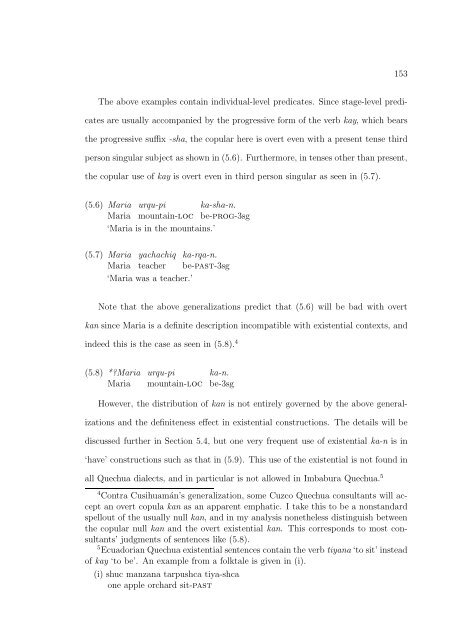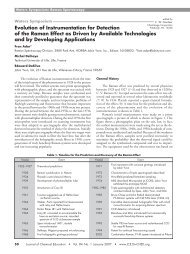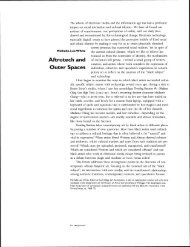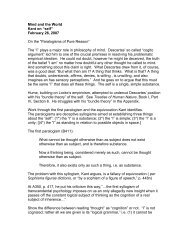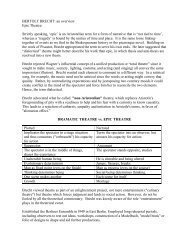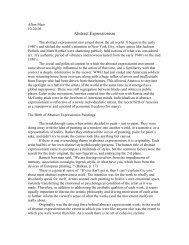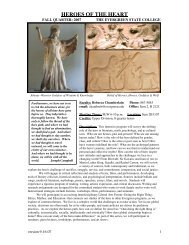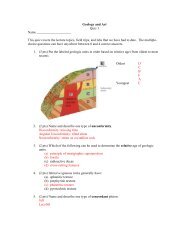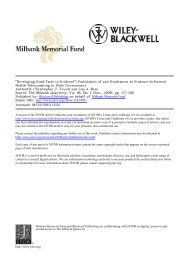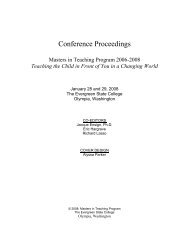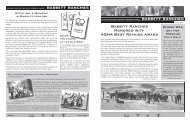the syntax and semantics of relativization and quantification
the syntax and semantics of relativization and quantification
the syntax and semantics of relativization and quantification
You also want an ePaper? Increase the reach of your titles
YUMPU automatically turns print PDFs into web optimized ePapers that Google loves.
153<br />
The above examples contain individual-level predicates. Since stage-level predicates<br />
are usually accompanied by <strong>the</strong> progressive form <strong>of</strong> <strong>the</strong> verb kay, which bears<br />
<strong>the</strong> progressive suffix -sha, <strong>the</strong> copular here is overt even with a present tense third<br />
person singular subject as shown in (5.6). Fur<strong>the</strong>rmore, in tenses o<strong>the</strong>r than present,<br />
<strong>the</strong> copular use <strong>of</strong> kay is overt even in third person singular as seen in (5.7).<br />
(5.6) Maria urqu-pi ka-sha-n.<br />
Maria mountain-loc be-prog-3sg<br />
‘Maria is in <strong>the</strong> mountains.’<br />
(5.7) Maria<br />
Maria<br />
yachachiq<br />
teacher<br />
ka-rqa-n.<br />
be-past-3sg<br />
‘Maria was a teacher.’<br />
Note that <strong>the</strong> above generalizations predict that (5.6) will be bad with overt<br />
kan since Maria is a definite description incompatible with existential contexts, <strong>and</strong><br />
indeed this is <strong>the</strong> case as seen in (5.8). 4<br />
(5.8) *?Maria<br />
Maria<br />
urqu-pi<br />
mountain-loc<br />
ka-n.<br />
be-3sg<br />
However, <strong>the</strong> distribution <strong>of</strong> kan is not entirely governed by <strong>the</strong> above generalizations<br />
<strong>and</strong> <strong>the</strong> definiteness effect in existential constructions. The details will be<br />
discussed fur<strong>the</strong>r in Section 5.4, but one very frequent use <strong>of</strong> existential ka-n is in<br />
‘have’ constructions such as that in (5.9). This use <strong>of</strong> <strong>the</strong> existential is not found in<br />
all Quechua dialects, <strong>and</strong> in particular is not allowed in Imbabura Quechua. 5<br />
4 Contra Cusihuamán’s generalization, some Cuzco Quechua consultants will accept<br />
an overt copula kan as an apparent emphatic. I take this to be a nonst<strong>and</strong>ard<br />
spellout <strong>of</strong> <strong>the</strong> usually null kan, <strong>and</strong> in my analysis none<strong>the</strong>less distinguish between<br />
<strong>the</strong> copular null kan <strong>and</strong> <strong>the</strong> overt existential kan. This corresponds to most consultants’<br />
judgments <strong>of</strong> sentences like (5.8).<br />
5 Ecuadorian Quechua existential sentences contain <strong>the</strong> verb tiyana ‘to sit’ instead<br />
<strong>of</strong> kay ‘to be’. An example from a folktale is given in (i).<br />
(i) shuc manzana tarpushca tiya-shca<br />
one apple orchard sit-past


